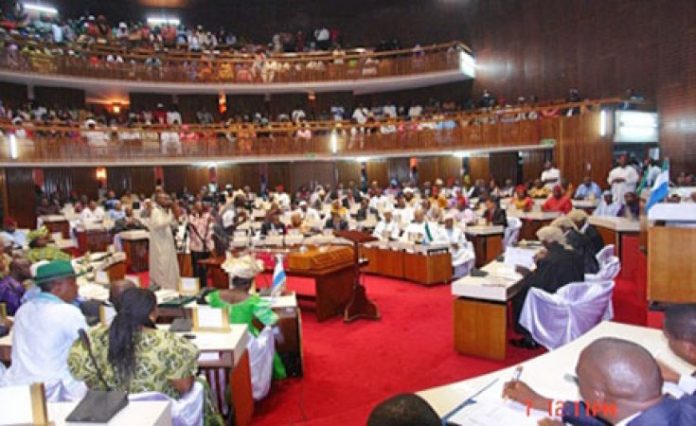By Foday Moriba Conteh
Members of Parliament were engaged on the 9th November, 2020 by the Public Sector Reform Unit (PSRU) on the establishment of the Wages and Compensation Commission.
The event which was held at Committee Room One, Parliament Building in Freetown, attracted several Members of Parliament including its Leadership consisting of the Rt. Hon. Speaker of Parliament, Dr. Abass Chernor Bundu, Deputy Speaker , Leader of Government Business, Leader of the Opposition, Leader of C4C and the Clerk of Parliament.
In his welcome address, the Clerk of Parliament, Hon. Paran Umar Tarawally expressed appreciation to the organizers for their determination and commitment to bring such an important programme to their doorstep. He concluded by wishing the organizers successful deliberations.
In his statement, the Speaker of Parliament said it is very disheartening for someone who is working and having the same qualification with another person without earning the same salary and benefits. He used the occasion to ask that workers be remunerated relative to their qualification and experience.
The Speaker also informed his audience that he is part of the Salaries and Pensions Committee that determines the salaries of appointees and expressed hope that a successful outcome of the consultative process will end the disparities in terms of salaries and wages in the country.
Giving a background statement on the Wages and Compensation Commission (WCC), the Director of PSRU, Georgiana Kamara said the huge disparities in salaries of both public and civil servants has warranted the Government of Sierra Leone to set up the said Commission with a view of getting the legal backing aimed at the harmonization of wages and salaries in the country.
Making a PowerPoint presentation on the Wages and Compensation Commission, Consultant, Mr. George Smith-Graham highlighted the importance of the WCC and also briefed MPs on the procedure, in light of several consultative meetings geared towards harmonizing the existential disparities in wages and salaries in the country.
Speaking on the objectives of the Consultancy, he talked about the scope, guiding principles, methodology, overview of key issues and concepts, laws and policies on salary administration in Sierra Leone, constitutional provisions, administrative instructions and institutional arrangements for salaries and pensions in Sierra Leone.
At the end of the programme, the Clerk of Parliament thanked the Consultant for what he described as a “positive work done”, and appealed that the documents be presented to MPs in order for them to have an in-depth knowledge into the issues raised, so as to put them at vantage positions to come up with a better policy and take legislative actions.




